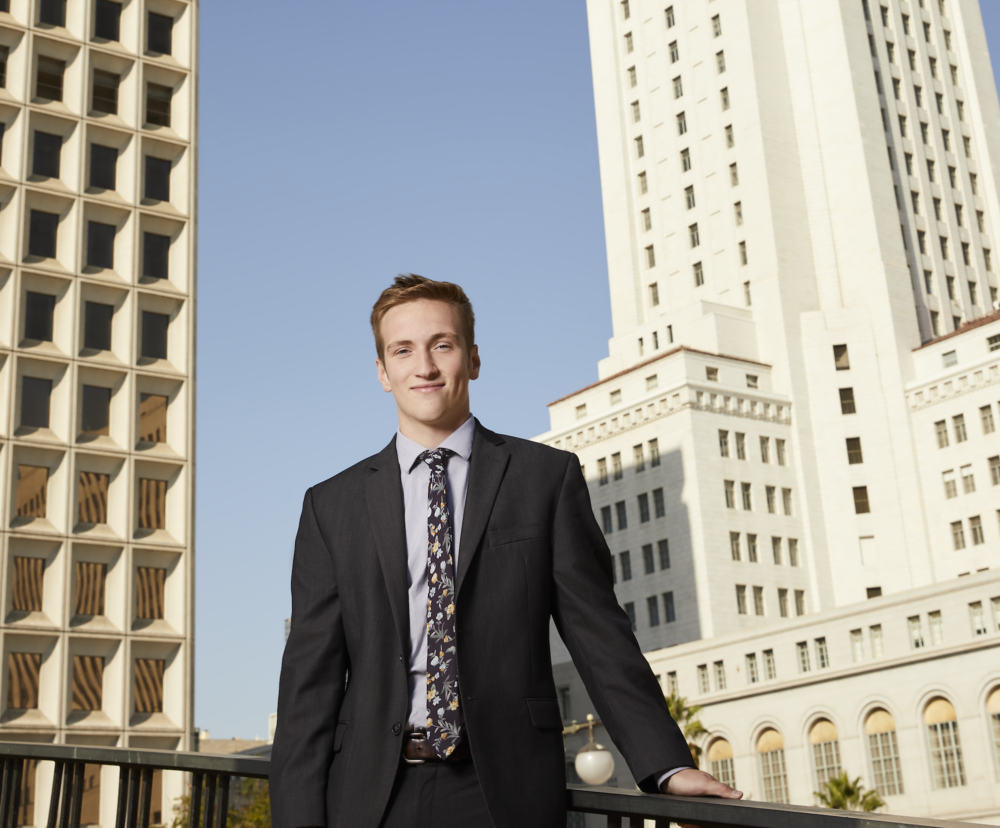
The problem is what’s missing: the urban tree canopy. Trees, which remove pollutants from the air, soil and water, and cool the surrounding areas, are a vital part of a city’s ecosystem. When there are too few trees, the people and life in that area experience the urban “heat island” effect.
Ryan Burke ’20, an urban studies major with a computer science minor, spent his summer internship on the Los Angeles mayor’s office infrastructure team, documenting the city’s tree canopy and identifying areas in need of more foliage. He found the internship through his friend, Emily Simso ’17, who he knew from their work in the university’s Sursum Corda service organization.
Burke’s surveys called for an application of the knowledge he’s gained from his hybrid of urban studies and computer science courses. He employed geographic information systems, or GIS, to do a geo-spatial analysis to find the areas of greatest need. Much of his source data came from the Center for Urban Resilience at LMU and the Tree People nonprofit organization.
By identifying bare spots on the urban landscape, Burke was able to compile a priority placement list. The GIS mapping data allowed him to tell a visual story about where L.A.’s trees were adequately spaced and where there were gaps. He had learned how to use this research tool in two classes at LMU, putting his education to practical use. With the help of Burke’s analysis, the city of Los Angeles aims to increase trees by 50 percent by 2025.
He was also involved in the mayor’s food-waste initiative, the aim of which is to develop a widespread food recovery program. He conducted research on facilitating food recovery, and gathered information about best practices from food rescue programs. Burke also went to the Los Angeles International Airport and toured the organic waste pilot program in the lounge kitchens.
Burke attended Boston College High School and was drawn to LMU because of the Jesuit tradition. His service ethic is also following in the footsteps of his firefighter father. Burke had applied to several Jesuit universities, but decided that L.A. was different enough from Boston to make his college journey an adventure, and his internship is a prime example of the potential of an LMU education.
After graduation, he aims to work in sustainable transportation — from trees to bike shares — continuing his passion for studying and creating green cities.



